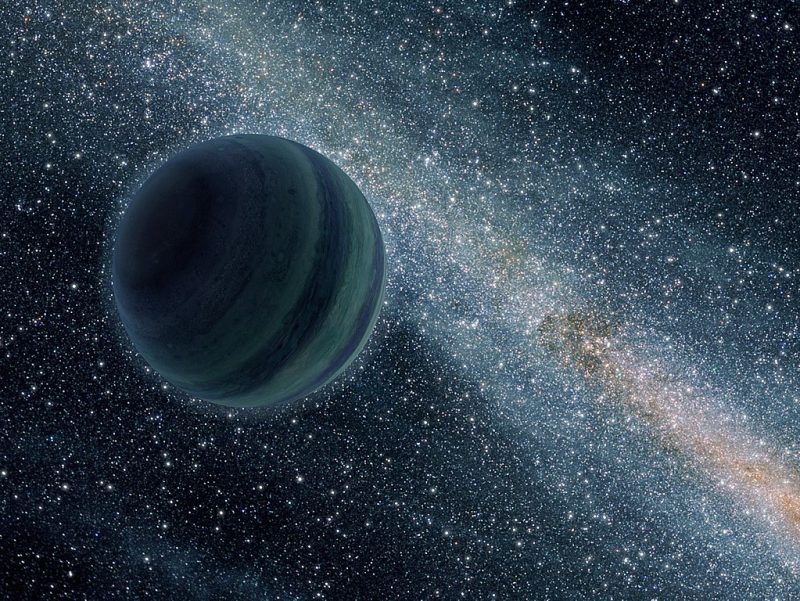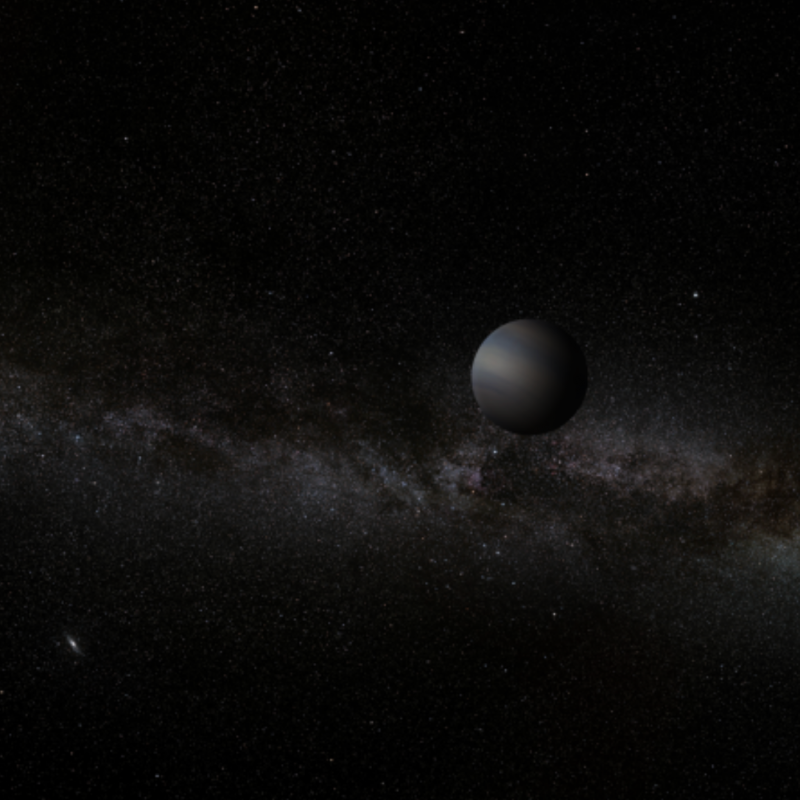
Why haven’t we found alien civilizations, assuming they exist? Irina K. Romanovskaya (Irina Mullins), a professor of physics and astronomy at Houston Community College System, thinks maybe we’ve been looking in all the wrong places. In a press release from Cambridge University Press – dated May 26, 2022 – Romanovskaya said we might be more successful if we considered rogue planets and possible migrating civilizations. Suppose an alien society’s home planet becomes uninhabitable? Then, Romanovskaya said, aliens might hitch a ride on free-floating planets. She pointed out that these worlds would offer space, resources and protection for long interstellar journeys.
The peer-reviewed International Journal of Astrobiology published Romanovskaya’s study on April 28, 2022.
Homeless aliens traveling on rogue planets
Romanovskaya calls her theory the Cosmic Hitchhikers Hypothesis. She says that alien civilizations could migrate to the free-floating planets when these rogue planets pass near the civilizations’ home planets. They could also ride ejected planetary objects away from their dying host stars. (Perhaps on a shattered piece of a planet?) Another possibility is that ETs could use propulsion systems or gravity assist events to convert dwarf planets into rogue planets. Once torn from their solar bonds, they could roam interstellar space.
The alien civilizations could also use rogue planets to survey interstellar space, stars and planetary systems. They could send biological species to establish colonies in numerous planetary systems. It would give them a jump start on preserving and expanding their civilizations even before they’re faced with threats on their home planets.
Homeless aliens making themselves at home in new planetary systems
Rogue planets, by definition, are floating through the emptiness of space, untied to a home star. Without solar energy, Romanovskaya theorizes that aliens on these planets could use controlled nuclear fusion as their energy source. They could also live under the surface of the planet or in oceans as protection against space radiation.
However, free-floating planets cannot sustain their oceans forever. So Romanovskaya says the civilizations would want to ride their rogue planet to a new stellar system where there are more opportunities and other planets to colonize. Romanovskaya hypothesizes that the aliens would approach a new planetary system from the outskirts, transfer to objects in the Oort cloud (the region of comets on the icy edge of solar systems), and travel inward.

How to find these rogue-planet civilizations
So how would we find alien civilizations riding rogue planets across the galaxy? Romanovskaya says we should search for certain technosignatures, or electromagnetic emissions produced by extraterrestrial technologies. In fact, Romanovskaya gives an example that shows we may already have detected one.
On August 15, 1977, astronomers detected a strange signal from space that they dubbed the Wow! signal. Coming from the direction of Sagittarius, they were only ever able to detect this amplified signal once and are still searching for its source.
Therefore, Romanovskaya thinks it’s possible for astronomers to detect a rogue planet’s technosignatures without detecting the planet itself, which could lead to misinterpretations of what they’re witnessing. If aliens on a rogue planet were responsible for the Wow! signal, the planet may then have moved from the location where astronomers detected the transmission. So Romanovskaya says astronomers should search for free-floating planets along the lines of observations of unusual and potentially artificial signals coming from space.
Rogue planets visiting our solar system
This scenario begs the question: Could aliens on a rogue planet pass near our solar system? Romanovskaya says that while the chances are small, it is possible. In the paper, she discusses the different ways to look for artifacts of the visits of rogue planets supporting alien life or artificial-intelligent scouts.
If, somewhere in our part of the galaxy, migrating intelligent species or AI are riding free-floating planets looking for a new home, Romanovskaya wants us to be searching for them.
Bottom line: An astronomer hypothesizes that aliens could hitch a ride on rogue planets to travel through interstellar space and colonize new planetary systems in the galaxy.
Via Cambridge University Press Release
The post Could homeless aliens migrate to rogue planets? first appeared on EarthSky.
0 Commentaires